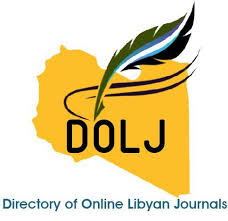Assessment of Helicobacter Pylori Infection by Antigen Stool Test in Al Jmail Libyan Patients
DOI:
https://doi.org/10.26719/LJMR18.2-05Keywords:
H.pylori bacteria, patients, stool antigen testAbstract
Purpose: H. pylori infection is one of the most common bacterial infections worldwide, with a prevalence ranging from 30% to 50% in developed countries and up to 80% in developing nations. The aim of the study is to investigate patients attitudes and practices about H. pylori infection in Aljmail, Libya, as well as investigate associated with a positive attitude and better behavioral practices, and the performance of stool antigen tests for detecting H. pylori infection. Methods: The cross-sectional study was carried out during the four months from March to June 2024 and used a validated questionnaire, was divided into four parts. Results: One hundred participants successfully completed the questioner's equations, and they had positive findings associated with a positive attitude, better behavioural practices, and the performance of stool antigen tests for detecting H. pylori infection. Conclusions:It appears that both genders in Al Jamil City had the same prevalence of H. pylori. Married subjects experienced it more frequently than single subjects. The prevalence of H. pylori infection varies according to age group; nonetheless, stool testing appears to be a simple, readily available low-cost method based on the relatively high detection rates by HpSA.
Downloads
References
LI, Lu, et al. Association of Helicobacter pylori Infection with Depression and Anxiety: A Systematic Review and Meta‐Analysis. International Journal of Clinical Practice, 2024, 2024.1: 9247586.
COELHO, Luiz Gonzaga Vaz, et al. IV th brazilian consensus conference on helicobacter pylori infection. Arquivos de gastroenterologia, 2018, 55: 97-121.
TOSETTI, Cesare, et al. Survey on the Knowledge and the Management of Helicobacter pylori Infection by Italian General Practitioners and Doctors in General Practice Training. Gastrointestinal Disorders, 2024, 6.2: 421-430.
ALAJMI, Shahad M., et al. Knowledge and Attitude of Medical Students Towards Helicobacter pylori Infection and Its Prevention and Management: A Study From Riyadh, Saudi Arabia. Cureus, 2023, 15.12.
HUH, Cheal Wung; KIM, Byung-Wook. Diagnosis of Helicobacter pylori infection. The Korean Journal of Gastroenterology, 2018, 72.5: 229-236.
DHARMALINGAM, S., et al. Relationship of plasmid profile with the antibiotic sensitivity pattern of Helicobacter pylori isolates from peptic ulcer disease patients in Chennai. Indian journal of medical microbiology, 2003, 21.4: 257-261.
OMAR, Eisa. Evaluating the Performance of Stool Antigen Tests to Detect Helicobacter pylori Infection in Tobruk, Libya. AlQalam Journal of Medical and Applied Sciences, 2023, 522-526.
SEWILAM, Ansam M., et al. Quality of Life among Patients with Helicobacter Pylori Infection. Benha Journal of Applied Sciences, 2024, 9.4: 69-80.
MALEK, Abdullah Imadeddin, et al. Knowledge, attitudes and practices of adults in the United Arab Emirates regarding Helicobacter pylori induced gastric ulcers and cancers. Asian Pacific Journal of Cancer Prevention: APJCP, 2021, 22.5: 1645.
ALAJMI, Shahad M., et al. Knowledge and Attitude of Medical Students Towards Helicobacter pylori Infection and Its Prevention and Management: A Study From Riyadh, Saudi Arabia. Cureus, 2023, 15.12.
ALARIDAH, Nader, et al. Attitudes and Practices Regarding Helicobacter Pylori Infection Among the Public in Jordan: A Cross-Sectional Survey. Cureus, 2024, 16.2.
OMAR, Eisa. Evaluating the Performance of Stool Antigen Tests to Detect Helicobacter pylori Infection in Tobruk, Libya. AlQalam Journal of Medical and Applied Sciences, 2023, 522-526.
HUWIAGE, Goma Mohamed; NAMI, Abdurrazag Altaher; AKADH, Ali Hussein. stool antigen (hpsa) test in detection of helicobacter pylori infection among adult dyspeptic patients in tripoli, Libya. International Journal of Medicine and Medical Research, 2020, 2.5: 5-14.
Downloads
Published
Issue
Section
License
Copyright (c) 2024 Reem shour, , Najwa S Eldawi, Hassan S Tarom, Ahmed M Almoshamer, Ebtesam A Beshna (Author)

This work is licensed under a Creative Commons Attribution-NonCommercial-NoDerivatives 4.0 International License.
Open Access Policy
Libyan journal of medical Research (LJMR).is an open journal, therefore there are no fees required for downloading any publication from the journal website by authors, readers, and institution.
The journal applies the license of CC BY (a Creative Commons Attribution 4.0 International license). This license allows authors to keep ownership f the copyright of their papers. But this license permits any user to download , print out, extract, reuse, archive, and distribute the article, so long as appropriate credit is given to the authors and the source of the work.
The license ensures that the article will be available as widely as possible and that the article can be included in any scientific archive.
Editorial Policy
The publication of an article in a peer reviewed journal is an essential model for Libyan journal of medical Research (LJMR). It is necessary to agree upon standards of expected ethical behavior for all parties involved in the act of publishing: the author, the journal editorial, the peer reviewer and the publisher.
Any manuscript or substantial parts of it, submitted to the journal must not be under consideration by any other journal. In general, the manuscript should not have already been published in any journal or other citable form, although it may have been deposited on a preprint server. Authors are required to ensure that no material submitted as part of a manuscript infringes existing copyrights, or the rights of a third party.
Authorship Policy
The manuscript authorship should be limited to those who have made a significant contribution and intellectual input to the research submitted to the journal, including design, performance, interpretation of the reported study, and writing the manuscript. All those who have made significant contributions should be listed as co-authors.
Others who have participated in certain substantive aspects of the manuscript but without intellectual input should only be recognized in the acknowledgements section of the manuscript. Also, one of the authors should be selected as the corresponding author to communicate with the journal and approve the final version of the manuscript for publication in the LJMR.
Peer-review Policy
- All the manuscripts submitted to LJMR will be subjected to the double-blinded peer-review process;
- The manuscript will be reviewed by two suitable experts in the respective subject area.
- Reports of all the reviewers will be considered while deciding on acceptance/revision or rejection of a manuscript.
- Editor-In-Chief will make the final decision, based on the reviewer’s comments.
- Editor-In-Chief can ask one or more advisory board members for their suggestions upon a manuscript, before making the final decision.
- Associate editor and review editors provide administrative support to maintain the integrity of the peer-review process.
- In case, authors challenge the editor’s negative decision with suitable arguments, the manuscript can be sent to one more reviewer and the final decision will be made based upon his recommendations.














